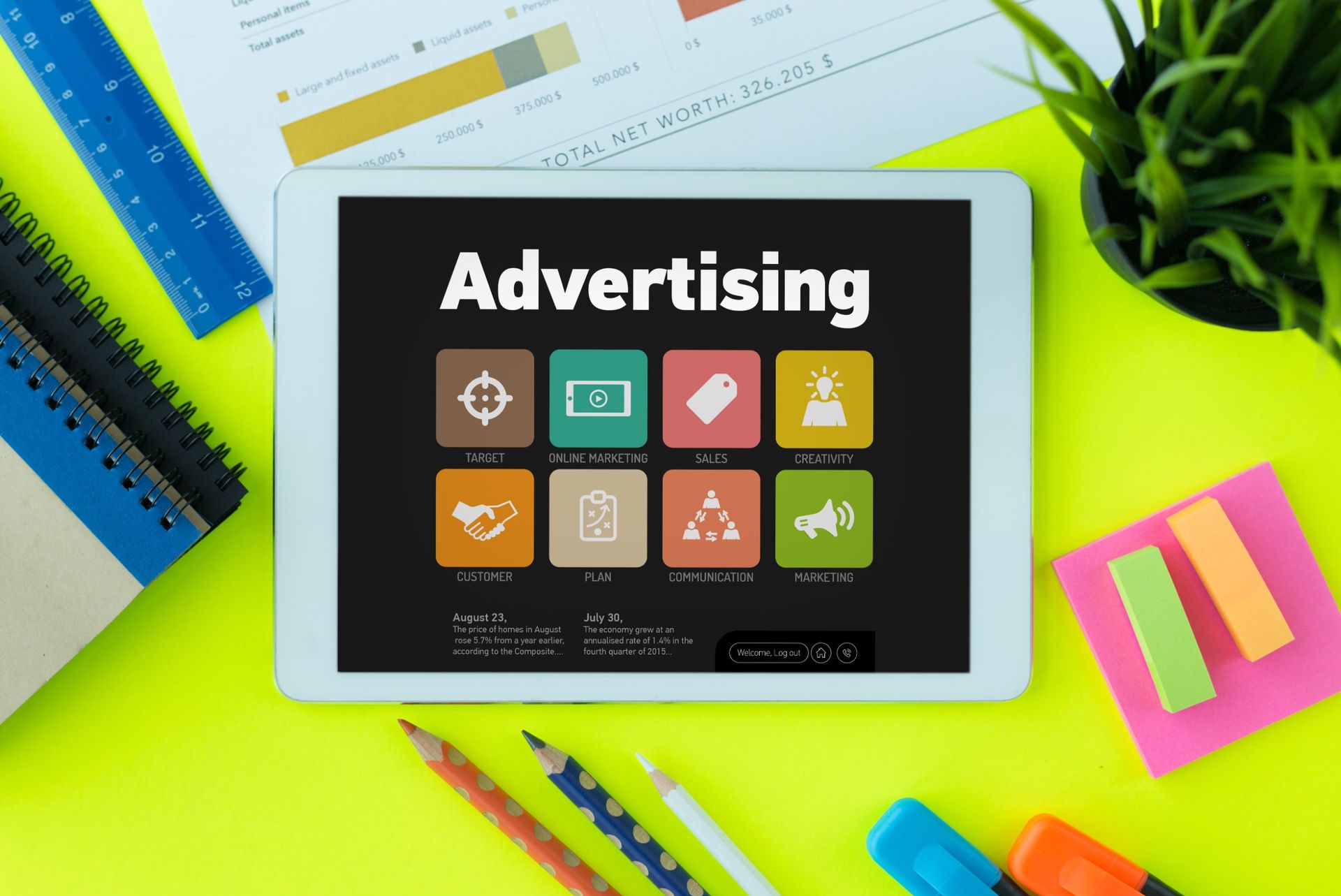Transform Your Business with Marketing Strategies That Work
In a world where everything and everyone is on the internet, businesses can't afford to ignore the power of digital marketing.
Whether you're a startup or an established company, leveraging the right digital marketing strategies can significantly boost your visibility, reach, and revenue. But what exactly is digital marketing? How can it benefit your business? And where do you start?
This blog post will walk you through the essential aspects of digital marketing and how you can harness its power to transform your business.
Digital Marketing - A Game Changer for Businesses
Digital marketing encompasses all marketing efforts that use the internet or electronic devices. Businesses leverage digital channels such as search engines, social media, email, and websites to connect with current and prospective customers. The purpose here is simple - to promote your brand and drive sales.
What Makes Digital Marketing Different?
Traditional marketing relies on methods like print ads, billboards, and TV commercials. Although effective, these methods can be expensive and difficult to measure. Digital marketing, on the other hand, offers more cost-effective and targeted solutions. You can track your campaigns in real time, adjust strategies on the fly, and measure ROI more accurately.
Why Your Business Needs Digital Marketing
No matter the size of your business, digital marketing levels the playing field. It provides equal opportunities for all businesses, big or small. You can reach a global audience, compete with larger corporations, and grow your business without breaking the bank.
Understand Your Target Audience
Before you can effectively market your business online, you need to understand your target audience. Knowing who your customers are, their preferences and their behavior is crucial for crafting relevant and engaging marketing campaigns.
Conduct Market Research
Market research helps you gather insights about your target audience. Use surveys, interviews, and focus groups to understand their needs and pain points. Analyzing this data will help you tailor your digital marketing efforts to meet their expectations.
Create Buyer Personas
Buyer personas are fictional representations of your ideal customers. They include demographic information, interests, challenges, and
buying behavior. Creating detailed buyer personas helps you create personalized marketing messages that resonate with your audience.
Understand Customer Journeys
Mapping out customer journeys helps you understand how customers interact with your brand at different stages. By identifying touchpoints and pain points, you can optimize your digital marketing strategies to provide a seamless and satisfying customer experience.
Build a Strong Online Presence
Your website is the heart of your digital marketing efforts. It's where potential customers learn about your products or services, interact with your brand, and make purchasing decisions. A strong online presence is essential for driving traffic and conversions.
Designing an Effective Website
Your website should be visually appealing, easy to navigate, and mobile-friendly. It should load quickly and provide valuable information that meets the needs of your target audience. Make sure your contact information is easily accessible, and include clear calls to action to guide visitors towards desired actions.
Optimizing for Search Engines
Search engine optimization (SEO) is the practice of improving your website's visibility on search engines like Google. Use relevant keywords, create high-quality content, and build backlinks to improve your search rankings. By appearing on the first page of search results, you increase your chances of attracting organic traffic.
Leveraging Social Media
Social media platforms like Facebook, Instagram, Twitter, and LinkedIn are powerful tools for building brand awareness and engaging with your audience. Create a consistent posting schedule, share valuable content, and interact with your followers to build a loyal community around your brand.
Create Compelling Content
Content is king in the digital marketing world. High-quality content not only attracts and engages your audience but also establishes your authority and builds trust.
Blogging for Business
A blog is an excellent way to share valuable information, showcase your expertise, and drive traffic to your website. Write about topics that are relevant to your audience, answer their questions, and provide actionable insights. Regularly updating your blog with fresh content helps improve your SEO rankings and keeps your audience coming back for more.
Using Video Marketing
Video content is highly engaging and can convey complex information in an easily digestible format. Create videos that showcase your
products, share customer testimonials, or provide educational content. Platforms like YouTube and social media channels are great for sharing video content and reaching a wider audience.
Harness the Power of SEO
SEO is a critical component of digital marketing. It involves optimizing your website and content to rank higher in search engine results, thereby increasing your visibility and driving organic traffic.
On-Page SEO
On-page SEO refers to the optimization of individual web pages to rank higher and earn more relevant traffic. This includes using relevant keywords, optimizing titles and meta descriptions, and ensuring your content is valuable and engaging.
Off-Page SEO
Off-page SEO involves activities outside your website that impact your rankings. This includes building high-quality backlinks from reputable sites, engaging in social media marketing, and encouraging positive reviews from satisfied customers.
Technical SEO
Technical SEO focuses on improving the technical aspects of your website to enhance its performance. This includes optimizing site speed, ensuring mobile-friendliness, and implementing structured data to help search engines understand your content better.
Utilize Paid Advertising
Paid advertising is a quick way to boost your visibility and attract targeted traffic. Pay-per-click (PPC) advertising, social media ads, and display ads are popular options for driving immediate results.
Google Ads
Google Ads allows you to create targeted ads that appear on Google's search results and partner websites. You only pay when someone clicks on your ad, making it a cost-effective way to reach potential customers.
Social Media Advertising
Platforms like Facebook, Instagram, and LinkedIn offer robust advertising options that allow you to target specific demographics and interests. Social media ads are highly effective for building brand awareness and driving engagement.
Display Advertising
Display ads are visual advertisements that appear on websites within Google's Display Network. They can be in the form of banners, images, or videos and are effective for retargeting and increasing brand visibility.
Engage with Your Audience
Engagement is key to building strong relationships with your audience. Responding to comments, addressing concerns, and encouraging user-generated content helps create a sense of community and loyalty.
Social Media Engagement
Be active on your social media channels, respond to comments and messages promptly, and participate in conversations. Hosting live sessions, Q&A, and contests can also boost engagement and foster a sense of community.
Hosting Webinars
Webinars are an excellent way to provide value to your audience, showcase your expertise, and generate leads. Choose relevant topics, promote your webinar across your channels, and engage with participants during the session.
Encouraging Reviews and Testimonials
Positive reviews and testimonials build trust and credibility. Encourage satisfied customers to leave reviews on your website, Google, and social media platforms. Highlighting these reviews can influence potential customers' purchasing decisions.
Measuring and Analyzing Performance
To ensure your digital marketing efforts are effective, it's crucial to measure and analyze your performance. Use analytics tools to track key metrics and make data-driven decisions.
Setting Clear Objectives
Establish clear objectives for your digital marketing campaigns. Whether it's increasing website traffic, generating leads, or boosting sales, having specific goals helps you measure success and make necessary adjustments.
Using Analytics Tools
Platforms like Google Analytics provide valuable insights into your website's performance, user behavior, and traffic sources. Monitor metrics such as bounce rate, conversion rate, and average session duration to understand what works and what needs improvement.
Adjusting Strategies Based on Data
Regularly review your analytics data and adjust your strategies accordingly. Identify trends, test different approaches, and optimize your campaigns to maximize results.
Staying Ahead of Trends
The digital marketing landscape is constantly evolving. Staying updated with the latest trends and adapting your strategies accordingly is essential for maintaining a competitive edge.
Following Industry News
Subscribe to industry blogs, attend webinars, and follow thought leaders to stay informed about the latest trends and best practices in digital marketing.
Experimenting with New Strategies
Don't be afraid to experiment with new digital marketing strategies. Test different content formats, advertising methods, and engagement techniques to see what resonates with your audience.
Investing in Continuous Learning
Investing in continuous learning and professional development helps you stay ahead of the curve. Take online courses, attend workshops, and participate in networking events to enhance your digital marketing skills.
Ready To Take Your Digital Marketing Efforts To The Next Level?
Madvertis, your luxury brand online advertising agency, offers comprehensive digital marketing solutions tailored to your needs. Whether you're looking to optimize your SEO, create compelling content, or run effective paid advertising campaigns, we have the expertise to help you succeed. Don't wait – contact us today and let's start building your success story together!









